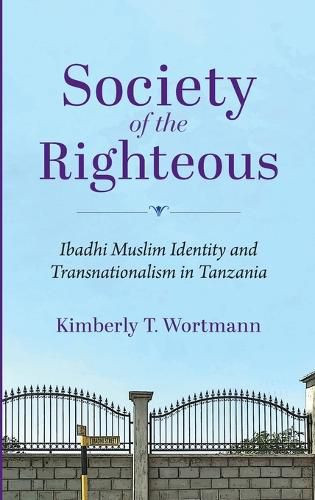Readings Newsletter
Become a Readings Member to make your shopping experience even easier.
Sign in or sign up for free!
You’re not far away from qualifying for FREE standard shipping within Australia
You’ve qualified for FREE standard shipping within Australia
The cart is loading…






This title is printed to order. This book may have been self-published. If so, we cannot guarantee the quality of the content. In the main most books will have gone through the editing process however some may not. We therefore suggest that you be aware of this before ordering this book. If in doubt check either the author or publisher’s details as we are unable to accept any returns unless they are faulty. Please contact us if you have any questions.
Although the rule of the Omani sultanate in Tanzania came to an end following the Zanzibar Revolution in 1964, the legacy of its empire still exists today, along with its distinctive religious identity. The Ibadhi Muslims of Omani descent, who are neither Sunni nor Shi'a, have used a message of tolerance and harmonious coexistence to spread their beliefs across North and East Africa in a post-revolution and post-independence era.
In Society of the Righteous, Kimberly T. Wortmann explores how the Ibadhi-Omani community in Tanzania has engaged in charitable activities, cooperation within the Muslim community, and economic development, despite facing suspicions of foreign influence and elitism. The focus is on the Istiqaama Muslim Community, an international charity network established in Oman and Tanzania in 1995. This ethnographic and transregional study documents the strategies employed by the "People of Truth and Righteousness" to preserve their unique religious practices and beliefs.
Society of the Righteous moves beyond the typical discussions on global Muslim religion and politics, such as tradition versus modernity, conflicts between different branches of Islam, and the global war on terror. Instead, it explores the intricacies of a religious community whose significance has been obscured by the limitations of area studies paradigms. It illuminates the complexities of religious identity, transnational networks, gender relations, and the power of collective memory in shaping narratives of belonging, cultural preservation, and change in an increasingly interconnected world.
$9.00 standard shipping within Australia
FREE standard shipping within Australia for orders over $100.00
Express & International shipping calculated at checkout
This title is printed to order. This book may have been self-published. If so, we cannot guarantee the quality of the content. In the main most books will have gone through the editing process however some may not. We therefore suggest that you be aware of this before ordering this book. If in doubt check either the author or publisher’s details as we are unable to accept any returns unless they are faulty. Please contact us if you have any questions.
Although the rule of the Omani sultanate in Tanzania came to an end following the Zanzibar Revolution in 1964, the legacy of its empire still exists today, along with its distinctive religious identity. The Ibadhi Muslims of Omani descent, who are neither Sunni nor Shi'a, have used a message of tolerance and harmonious coexistence to spread their beliefs across North and East Africa in a post-revolution and post-independence era.
In Society of the Righteous, Kimberly T. Wortmann explores how the Ibadhi-Omani community in Tanzania has engaged in charitable activities, cooperation within the Muslim community, and economic development, despite facing suspicions of foreign influence and elitism. The focus is on the Istiqaama Muslim Community, an international charity network established in Oman and Tanzania in 1995. This ethnographic and transregional study documents the strategies employed by the "People of Truth and Righteousness" to preserve their unique religious practices and beliefs.
Society of the Righteous moves beyond the typical discussions on global Muslim religion and politics, such as tradition versus modernity, conflicts between different branches of Islam, and the global war on terror. Instead, it explores the intricacies of a religious community whose significance has been obscured by the limitations of area studies paradigms. It illuminates the complexities of religious identity, transnational networks, gender relations, and the power of collective memory in shaping narratives of belonging, cultural preservation, and change in an increasingly interconnected world.